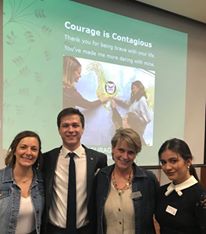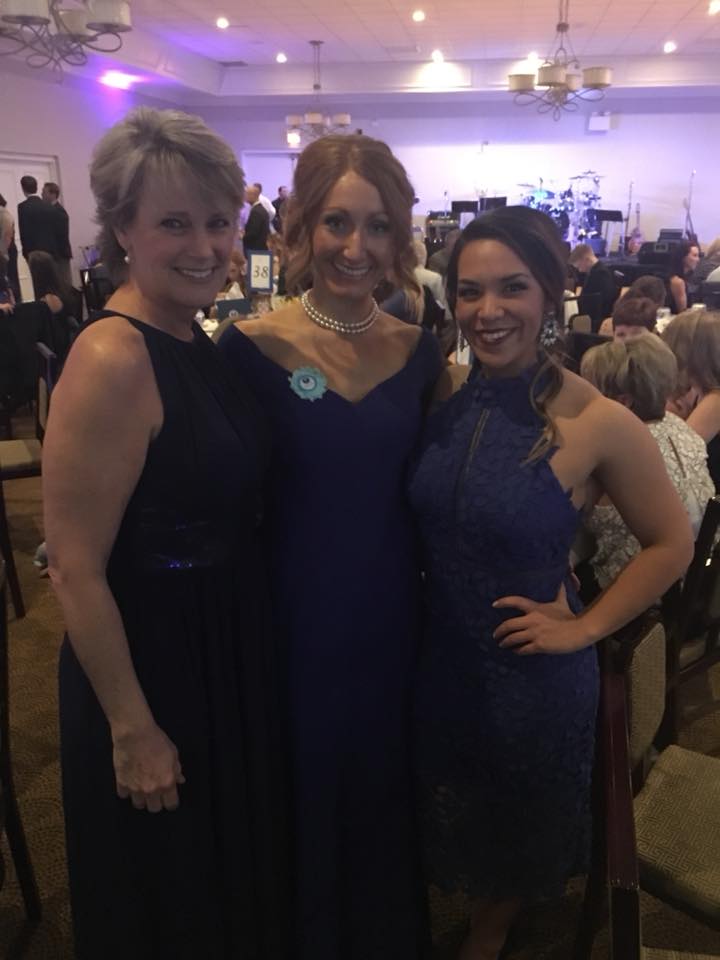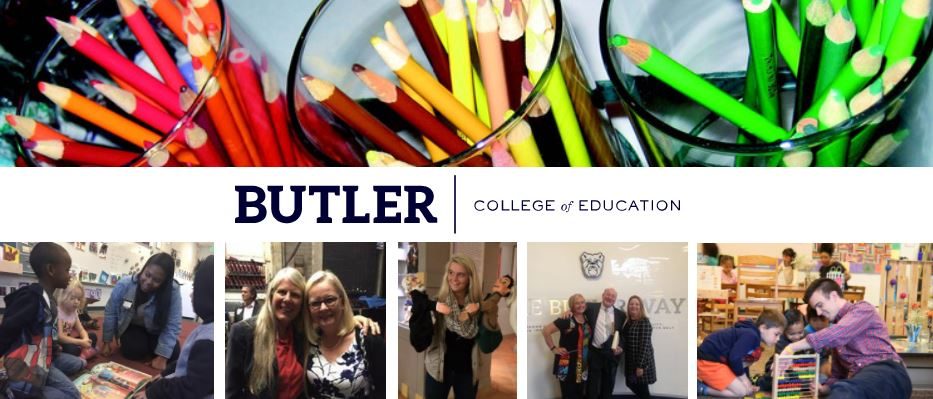
Left to right: Prof. Cathy Hartman, Dan Molodi, Dr. Lisa Farley, and Ghena Serri
Dr. Lisa Farley
Human Movement & Health Science Education Professor
by Erin Morrisey
When we meet some people, we want to do everything we can to become exactly like them, simply because they’re so wonderful. Coming into the College of Education (COE), surrounded by so many bright, inspiring, motivated people, it can be difficult to better yourself without feeling the need to become like someone else.
Dr. Lisa Farley voiced the struggle she faced finding her place in the COE; often, it’s easy to think that, surrounded by so many wonderful people, finding your own “big idea” to pursue like everyone else can be a challenge. Dr. Farley loves being the “worker bee.” She enjoys being a part of the support structure that permeates the COE, and believes much of the learning with her peers is more like being a worker bee than being a visionary.
However, it’s Dr. Farley’s simple desire to serve that makes her a wonderful professor. She doesn’t search for personal fulfillment or simply expand her own knowledge at the university. She simply wanted to make a difference, found her passion in health education, and serves the profession in whatever way she can. Dr. Farley helps students work on finding internships and pursing external relationships. She helps college students work on their research projects. She works with Dr. Hochman in IPS School 91, teaching first, second, and third graders while simultaneously training future teachers. And it was this work with grade school students that prompted Dr. Farley’s latest “big idea.”

Left to right: Dr. Lisa Farley, Jenna Cole, and Samantha Smith
Dr. Farley is a health educator to the core. She believes that health is the foundation of everything we do, and she wants to involve health in mainstream conversations, starting with grade school students. Specifically, Dr. Farley and Dr. Hochman are working together throughout this year to bring mental health conversations into the classroom, then plan to bring this conversation to Butler’s campus through the first, second, and third graders. Dr. Farley’s passion drives her desire to help students identify, understand, and talk intentionally about their emotions from as young an age as possible. Her big idea is to start one of the most complex conversations possible with children—whom some claim aren’t ready for such discussions—hoping to spark a change in these children’s lives for years to come.
While Dr. Farley might believe this is her first big idea that can cause a major change in the world, she’s clearly been enacting change for a long time. In addition to other work she’s done, She shared with me one of her common practices: she texts a person she hasn’t spoken to in a while, asks how their day is on a scale of one to ten, and then asks how she can improve that score by one. Dr. Farley’s simple display of care for others moved me. She thinks that only big ideas are necessary for change, but she changes the world simply by caring for others. Sometimes, relationships are more important than any innovative idea.
